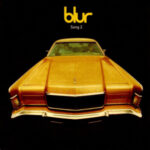 Exploring human experiences through music is a timeless endeavor, with artists often delving into taboo subjects. Surprisingly, masturbation, a universally private act, finds its way into song lyrics across genres. These songs, often veiled in metaphor or humor, provide a unique lens into human sexuality and self-discovery.
Exploring human experiences through music is a timeless endeavor, with artists often delving into taboo subjects. Surprisingly, masturbation, a universally private act, finds its way into song lyrics across genres. These songs, often veiled in metaphor or humor, provide a unique lens into human sexuality and self-discovery.
From the tongue-in-cheek humor of “I Touch Myself” by Divinyls to the more explicit “She Bop” by Cyndi Lauper, artists have embraced the topic with varying degrees of subtlety. Even rock legends like The Rolling Stones with “Start Me Up” and pop icons like Britney Spears with “Touch of My Hand” have broached the subject, albeit with different levels of explicitness.
While some may find discussing masturbation uncomfortable, these songs highlight a fundamental aspect of human nature. They serve as a reminder that amidst societal taboos, there exists a rich tapestry of human experiences waiting to be explored, even in the most unexpected of places—like within the lyrics of a song.
Tori Amos – Icicle
Tori Amos’s song “Icicle,” from her 1994 album Under the Pink, subtly yet powerfully explores the theme of masturbation, intertwining it with religious and personal awakening. Set against the backdrop of Easter Sunday, the song begins with Amos describing how she slips away while her family attends church, creating a space for solitude and introspection.
The lyrics “When they say, ‘Take of his body,’ I think I’ll take from mine instead” juxtapose the act of Communion with self-pleasure, highlighting a defiance against religious norms and a reclaiming of bodily autonomy. The icicle metaphor serves dual purposes: it represents the cold, rigid attitudes society often holds towards female sexuality, and it symbolizes a tool for self-discovery and pleasure.
Musically, the song’s gentle piano introduction crescendos into a more intense arrangement, mirroring the natural progression of arousal and climax. This build-up underscores the song’s message that masturbation is a natural, beautiful act rather than something shameful.
Through “Icicle,” Amos addresses female masturbation with candidness and poetic sensitivity, challenging societal taboos and encouraging a dialogue about the personal and liberating aspects of sexual self-exploration. The song celebrates self-acceptance and the reclaiming of one’s body, making a powerful statement about sexuality and identity.
Prince – Darling Nikki
Prince’s song “Darling Nikki,” from his 1984 album Purple Rain, is an unabashed exploration of sexuality, with a particular focus on masturbation. The song begins with the protagonist meeting Nikki, a sexually liberated woman, in a hotel lobby. The lyrics immediately set a provocative tone: “I met her in a hotel lobby, masturbating with a magazine.”
This explicit reference to masturbation is bold and direct, challenging the norms of pop music at the time. Prince uses Nikki’s character to delve into themes of sexual freedom and experimentation, highlighting a raw and unapologetic approach to pleasure. The song’s narrative unfolds with Nikki leading the protagonist into a whirlwind of erotic encounters, further emphasizing themes of sexual liberation and self-exploration.
Musically, “Darling Nikki” complements its risqué content with a gritty, rock-infused sound, featuring prominent guitar riffs and a driving beat that enhances the song’s provocative energy. The climactic ending, marked by backwards vocals, adds a layer of mystique and intensity.
“Darling Nikki” stands out not only for its explicit content but also for its fearless portrayal of sexuality, particularly female sexuality. Prince’s daring lyrics and powerful composition push boundaries, making a significant cultural statement about the acceptance and celebration of sexual autonomy and self-pleasure.
Elvis Costello – Pump It Up
Elvis Costello’s song “Pump It Up,” from his 1978 album This Year’s Model, is often interpreted as a commentary on the excesses of rock and roll lifestyle, but it also contains underlying themes of sexual frustration and masturbation. The song’s frenetic energy and driving beat mirror the intensity of pent-up desire.
The lyrics are laced with double entendres and suggestive imagery. Lines like “You wanna torture her / You wanna talk to her” and “Pump it up until you can feel it” hint at the compulsive nature of sexual urges. Costello’s rapid-fire delivery and the song’s relentless rhythm amplify the sense of urgency and tension.
The repeated refrain “Pump it up when you don’t really need it” can be seen as a metaphor for the repetitive and often unfulfilling nature of masturbation, especially when driven by boredom or frustration rather than genuine desire. This interpretation is bolstered by the song’s tone, which combines excitement with a sense of dissatisfaction.
“Pump It Up” thus uses its catchy, high-energy sound to mask a deeper commentary on sexual frustration and the cyclical nature of indulgence without fulfillment. Through clever wordplay and energetic performance, Costello crafts a song that captures the complexities of desire and self-gratification.
The Vapors – Turning Japanese
The Vapors’ song “Turning Japanese,” from their 1980 album New Clear Days, has long been rumored to be about masturbation. While the band has neither confirmed nor denied this interpretation explicitly, the song’s lyrics and energetic delivery suggest themes of sexual frustration and self-pleasure.
The phrase “Turning Japanese” is often interpreted as a metaphor for the facial expressions typically associated with sexual climax, particularly in reference to the stereotypical squinting eyes. The lyrics describe obsessive behavior and intense longing: “I’ve got your picture, I’ve got your picture / I’d like a million of you all round my cell.” This fixation on a photograph hints at the solitary nature of the protagonist’s sexual experience.
The repetitive chorus, “I think I’m turning Japanese, I really think so,” suggests a transformation driven by intense emotions and possibly physical sensations. The song’s upbeat tempo and catchy melody contrast with the underlying theme of loneliness and unfulfilled desire.
Despite its lively and almost cheerful sound, “Turning Japanese” captures the angst and isolation that can accompany sexual obsession and the act of masturbation. The song remains a classic example of how pop music can blend catchy rhythms with deeper, more provocative themes, leaving its true meaning open to listener interpretation.
Cyndi Lauper – She Bop
Cyndi Lauper’s song “She Bop,” from her 1983 debut album She’s So Unusual, is a bold and playful anthem about masturbation. At a time when discussions about female sexuality were often muted, Lauper’s hit single stood out for its candid and cheeky exploration of self-pleasure.
The lyrics of “She Bop” are filled with playful euphemisms and innuendos. Lines like “They say I better stop or I’ll go blind” and “I can’t stop messin’ with the danger zone” allude to common myths and taboos surrounding masturbation. The song’s upbeat, bouncy rhythm and Lauper’s distinctive, exuberant vocal style create a fun and carefree atmosphere, celebrating rather than shaming the act.
“She Bop” was both a commercial success and a cultural statement. By addressing masturbation openly, Lauper challenged societal norms and provided a voice for female sexual autonomy. The song’s catchy melody and bold lyrics helped destigmatize the conversation around self-pleasure, especially for women.
In “She Bop,” Lauper not only crafted a pop hit but also a pioneering anthem of sexual independence and self-acceptance. The song remains a testament to her fearless approach to music and her willingness to tackle taboo subjects with humor and honesty.
DiVinyls – I Touch Myself
The Divinyls’ song “I Touch Myself,” released in 1990, is a candid and unapologetic anthem about masturbation. Unlike many songs that obscure sexual themes with metaphor, “I Touch Myself” directly addresses self-pleasure with a refreshing honesty and boldness.
The lyrics leave little to the imagination: “I love myself, I want you to love me / When I’m feeling down, I want you above me.” The chorus, “I touch myself, I want you to find me,” openly celebrates the act of self-pleasure and acknowledges the singer’s desire and autonomy over her own body. This straightforward approach was groundbreaking, especially in a pop music landscape that often skirted around such topics.
Musically, the song combines a seductive melody with the powerful vocals of lead singer Chrissy Amphlett, creating a mix of vulnerability and confidence. The sultry yet upbeat arrangement reinforces the song’s theme of self-love and sexual empowerment.
“I Touch Myself” was both a commercial hit and a cultural milestone, helping to normalize conversations about female sexuality and masturbation. Its unapologetic lyrics and catchy tune made it an enduring symbol of sexual liberation and self-acceptance, challenging listeners to embrace their own desires without shame. The song remains a bold declaration of personal freedom and sexual self-expression.
Devo – Praying Hands
Devo’s song “Praying Hands,” from their 1978 debut album Q: Are We Not Men? A: We Are Devo!, can be interpreted as a commentary on masturbation intertwined with themes of personal responsibility and societal norms. Known for their quirky style and satirical lyrics, Devo uses this track to challenge conventional views on self-pleasure.
The lyrics of “Praying Hands” employ a mix of playful and provocative language. The lines “You got your left hand, you got your right hand” and “Your left hand’s free, and your right hand’s free” can be seen as a metaphor for the physical act of masturbation, emphasizing the availability and autonomy of one’s own body. The repeated phrase “Put them together” could symbolize the act of self-pleasure, cleverly disguised as a form of introspection or prayer.
Devo’s characteristic new wave sound, with its driving rhythm and robotic delivery, underscores the song’s exploration of human behavior and control. The band’s satirical edge suggests a critique of societal expectations around sexuality and self-discipline.
“Praying Hands” stands out for its clever wordplay and subversive take on masturbation. By framing the act within the context of personal choice and societal pressure, Devo invites listeners to reconsider their views on self-pleasure, highlighting the intersection of physical autonomy and cultural norms. The song remains a testament to Devo’s innovative approach to music and social commentary.
The Violent Femmes – Blister In The Sun
Violent Femmes’ song “Blister in the Sun,” from their 1983 self-titled debut album, is often interpreted as a candid and energetic exploration of masturbation. With its catchy rhythm and distinctive acoustic sound, the song delves into themes of youthful desire and self-pleasure through vivid and somewhat cryptic lyrics.
The opening lines, “When I’m a-walkin’, I strut my stuff, and I’m so strung out,” suggest a sense of self-confidence intertwined with an almost overwhelming sensation of pent-up energy. The phrase “high as a kite” further enhances this idea of heightened excitement. However, it is the lines “Body and beats, I stain my sheets, I don’t even know why” that most explicitly hint at masturbation, referencing the physical aftermath of sexual release.
Musically, “Blister in the Sun” is driven by a bouncy, upbeat tempo that mirrors the exuberance and intensity of adolescent sexual energy. The raw, unpolished sound of the band complements the song’s theme, reflecting the rawness of teenage emotions and experiences.
“Blister in the Sun” captures the essence of youthful exuberance and the private, yet universal, experience of masturbation. Its candid lyrics and infectious melody have made it an enduring anthem, celebrating the complexities and freedoms of sexual self-discovery. Through its playful yet direct approach, the song continues to resonate with listeners as a bold declaration of personal freedom and the joy of self-exploration.
Billy Idol – Dancing With Myself
Billy Idol’s song “Dancing with Myself,” originally released by his band Generation X in 1980 and later as a solo single in 1981, is widely interpreted as a metaphor for masturbation. The song’s lyrics and energetic delivery blend themes of loneliness, self-reliance, and self-pleasure.
The chorus, “Well, there’s nothing to lose and there’s nothing to prove / And I’ll be dancing with myself,” suggests a scenario where the protagonist finds fulfillment alone, hinting at masturbation as a source of personal satisfaction. The verses describe scenes of social interaction, but the ultimate turn inward—“When I looked all over the world / And there’s every type of girl / But your empty eyes seem to pass me by”—implies a choice of self-pleasure over unfulfilling external relationships.
Musically, the song’s upbeat tempo and infectious rhythm mirror the excitement and intensity of the act. The punk-influenced sound, combined with Idol’s rebellious image, underscores the song’s theme of finding joy and liberation in oneself despite societal expectations.
“Dancing with Myself” stands out as a celebration of self-sufficiency and sexual independence. Through its catchy melody and provocative lyrics, the song addresses masturbation in a way that is both bold and approachable, challenging listeners to embrace self-pleasure as a valid and fulfilling experience.
This post has already been read 484 times!









